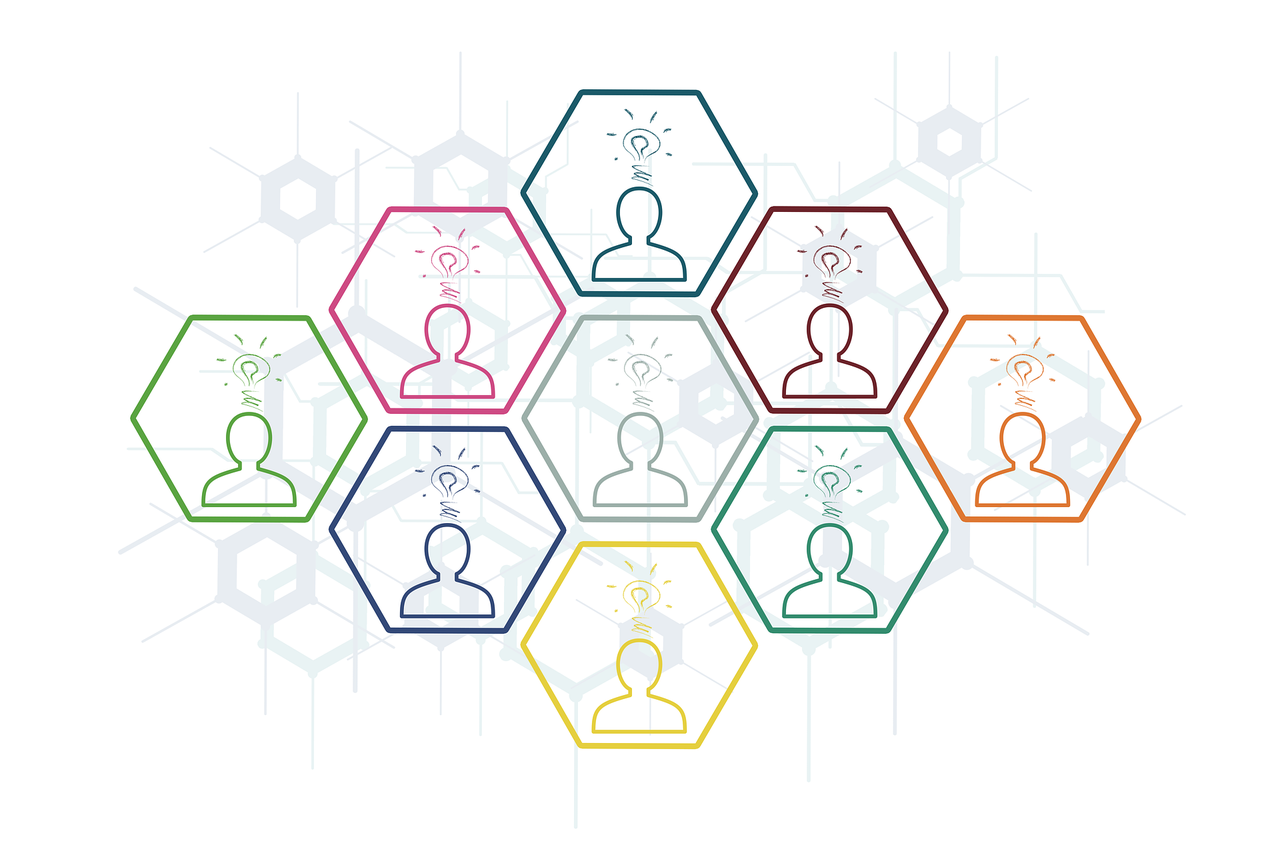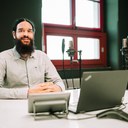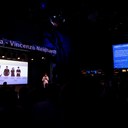By 2030, the Sustainable Development Goals (SDGs) are to be achieved globally and by all UN member states. The goals cover 17 interconnected global themes to lead the world to a better and more sustainable future. The goals include, for example, the eradication of poverty and hunger, education for all, universal equality, and clean water and energy. According to the motto "think globally, act locally", every contribution counts here. Against this background, the students showed how they can make their contribution through digital innovations.
Design thinking for fresh ideas
The project teams with students from the master’s programme in Information Systems come from more than ten nations. They worked closely together in small teams for five months. During this period, they were mentored by Dr Leona Chandra Kruse, Dr Bernd Schenk and Katharina Drechsler through a five-part design thinking workshop. "Our students already have skills in digitalisation, data analytics and cybersecurity. It is important to us to encourage their critical and sustainable thinking while at the same time creating a free space for creativity. The design thinking workshop, conceived by Dr. Bernd Schenk, offers a refreshing and design-oriented alternative to a classic lecture," says Dr. Leona Chandra Kruse, who led the seminar.
Successful women on the jury
The final presentation took place on 24 June. Two female founders were present as jurors. Iwona Fluda founded Ministry of Creativity and Creative Switzerland with the vision of bringing more creativity into the world. Megha Shreshta, an alumna of the University of Liechtenstein, is co-founder of Metabloqs, a decentralised metaverse for social networking, education and leisure. In their keynotes, they shared their start-up experience and innovation approach. They also gave constructive feedback on each team presentation.
Ideas and prototypes for a better future
The ideas presented by the students of the University of Liechtenstein were diverse and ranged from a food sharing platform against food waste to blockchain-based verification of sustainability certifications. In addition to their ideas, the teams also presented the prototypes of their solution approaches to show what practical benefits these projects can have. For this, their achievements combine both thinking and acting as well as innovation and responsibility.

The projects at a glance
EatAllot against food waste
Luiz Barbosa, Ajka Draganovic, Fiona Rüttimann, Lisa Stelzer, Michael Ziegler
EatAllot is an app that not only plans users' meals in advance, but also aims to change their lifestyles towards sustainability. The app consists of three main parts: Meal Planning, Meal Sharing and Hotspots. All three parts lead to a more sustainable lifestyle. Meal planning and sharing leftovers can reduce food waste. Hotspots show where the food users eat comes from and suggest where they can buy regional food to support local grocery shops and reduce their own carbon footprint.
SDG 11 (SDG = Sustainable Development Goal) sustainable cities and communities and SDG 12 sustainable consumption and production.
CertiChain: Blockchain for transparency and traceability in sustainability certification
Felix Drösel, Tobias Braun, Johannes Holmer, Vincenzo Neidhardt
Several certifications exist on the market that promise the sustainability of a product. CertiChain makes certification processes more transparent, trustworthy and comprehensible for consumers. CertiChain is a secure blockchain-based platform that acts as an intermediary between the food producer and the certifier. Food producers can reliably document their sustainable production process and this information is made available to consumers and certifiers in a processed form.
SDG 12 Sustainable consumption and production
CO2 footprint tracking during shopping
Aneliya Daskalova, Mark Vandevoorde, Piroska Szabo, Zou Yiqiao
The team addressed two major challenges that most food shoppers face: choosing the right products and understanding the sustainability impacts of each product. With this in mind, the team proposed a solution approach: a CO2 tracker integrated into the grocery shops' self-scanner and a dedicated mobile application with dashboard and reward function.
SDG 2 no hunger and SDG 12 sustainable consumption and production.
A digital job platform for unskilled workers
Nicolas Arnold, Carl B. Hoffer, Nika Kodiashvili, Ramanjit Singh, Kevin Lange
The team addressed the challenges of integrating unskilled workers into the labour market in the digital age. Unskilled workers make up the majority of the unemployed in developing countries like India. The digital job platform is easy to use and supports fair and trackable remuneration. Integrating unskilled workers into the labour market can help reduce the unemployment rate in these regions. Together with fair pay, this will in turn support the global fight against poverty.
SDG 1 no poverty
eSana for mental health
Sinem Kilic, Harika Ilik, Mohammed Boussatate
The team is addressing the challenges young people face in accessing mental health care. With the pandemic, the number of reported mental health problems among young people also increased. Many, if not most, do not receive appropriate therapy due to their own procrastination or lack of a straightforward referral and booking process. On the other hand, mental health professionals struggle to position their services to meet market demand. The team proposes a web- and mobile-based marketplace for psychotherapy that serves both patients and mental health professionals.
SDG 3 Health and well-being
The authors
Leona Chandra Kruse is an assistant professor in the Department of Information Systems. She focuses on topics at the intersection of entrepreneurship, information systems and psychology. She has been Associate Editor for the European Journal of Information System since 2020.
Katharina Drechsler is a research associate at the Chair of Innovations and Information Systems at the Institute of Information Systems. In her research and teaching, she deals with issues related to digital innovations and digital transformation. Katharina is doing her doctorate externally at the University of Bamberg on the role of innovation champions for digital innovations.
Meet us in person: Info events at the Uni Liechtenstein
Do you want to get off to a flying start in your job and acquire the necessary knowledge to do so? Then visit the campus at one of our info events and get to know the study programmes and meet Vincenzo and Daniel in person.






